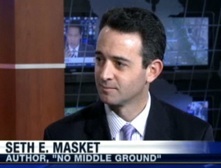Solar Bones by
Mike McCormack is a sweeping Irish story of one man's family history. Written in the first person as a stream of consciousness, the book explores both life and death against the backdrop of industry in Ireland. I think that I first read about it in this
NYT book review, but I had thought it was somehow linked to Obama (it was not). Who knows how I came to choose it, but nonetheless, I found it on the first table, in the first box, first book I saw at the Greenbelt Labor Day Festival and that is auspicious (it was in my "to read" list, so I had to make a donation to the Elementary school and read the book).
Started: 9/2/2018
Completed: 9/7/2018
Recommendation: Recommended
Recommended By: The New York Times?
Words and phrases for which I sought help:
Angelus bell -- A ringing of the bells that came after Vespers to indicate it was time for 3 consecutive "Hail Mary" prayers. The ringing often went to 100 times to distinguish the Angelus bell from other bells.
boreen -- a narrow country road.
Catherine Wheel -- also known as "breaking wheel" is a wheel (about the same as a wagon wheel generally with an iron rim) used by an executioner to break the bones of a person and execute them through a blow to the chest or neck (there is more to it, but I think that this is adequate to describe the horrific manner of execution). St. Catherine was to be executed this way, but she touched the wheel and it broke apart, so she was beheaded instead.
drumlin -- a low oval mound or small hill, typically one of a group, consisting of compacted boulder clay molded by past glacial action.
etiolated -- pale and drawn out due to lack of light
hustings -- an election platform
iron maiden -- a torture device sort of like a sarcophagus with spikes on the inside. The spikes rarely killed the person directly, but the person generally died of dehydration or "bleeding out."
nacelle -- A streamlined housing or tank for something on the outside of an aircraft or motor vehicle.
rood -- A crucifix, especially one positioned above the rood screen of a church or on a beam over the entrance to the chancel.
sheugh -- a furrow, ditch, or trench
Review:
This book left me out of breath. The lack of a period pretty much anywhere left me wondering when I could breath. This book was truly a book that embodies the concept of stream of consciousness. There were nice, clever, and precise turns of phrase. The characters were well developed and their actions were both predictable and surprising just like, well, normal people. It was a fun read, though it was a hard read. The book just keeps rolling along with the plot developing (to steal from the book) like concrete spilling into a form. The plot seemed to roll everywhere at once and it is possible to envision that one sort of runs around the edges in a spiral grasping at plot points wondering what was missing at each point and knowing that there will be another shot as the spiral weaves outward.
At the same time, the concrete gradually fills the forms and pops up over your boots as you wait to use your float and smooth out the rough parts. The inevitable problem, however, is that you really don't know what your are trying to smooth. It isn't at all clear how the various tendrils of the story come together except by turns of phrase that come back and sort of weave themselves through the concrete like reinforcing wire. Truly there, fundamental to the pour, but hidden in the totality of the result.
I think that I have strained this metaphor about as far as I can. It is a good book. It is very hard to put down. It wore me out. Read it.







:format(webp)/cdn.vox-cdn.com/uploads/chorus_asset/file/8492757/drawdown_book_cover.jpg)





















